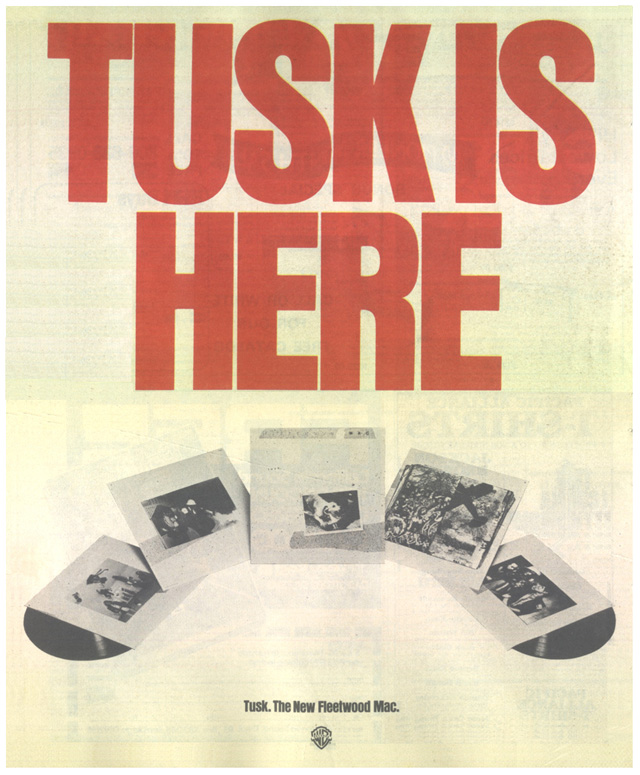
There's no denying Fleetwood Mac is having a resurgence. I'm not really sure what started my friends and I talking about Fleetwood Mac so frequently -- the karaoke addiction (see here and here) probably had something to do with it -- but their recent tour solidified my theory that they were reemerging in the public consciousness. A tribute album came out recently, with newer indie bands like Tame Impala, The Kills and MGMT covering their music. If the mid 2000s were all about The Boss, with The Arcade Fire and The Killers channeling Springsteen to varying degrees of success, the Mac is clearly in the early 2010s ether for some reason.
This resurgence is especially odd considering I grew up, as did many other indie rock fans, in a time when Fleetwood Mac was generally disregarded as lame dad, presidential campaign rock. But the band’s music has a wealth of emotion to it that wasn't acceptable in the irony-rich '90s, and their sonic experimentation is being appreciated more, which shows in the music of bands like Fleet Foxes. It would be interesting to see if I have kids one day and they feel the same way about, say, Nirvana, if they long for that kind of grittiness and earnest authenticity I mostly roll my eyes at now.
In a recent interview, rocker Kurt Vile described his new album Wakin on a Pretty Daze as "totally our Tusk" because it was recorded in California after hours of sessions. Strangely, I found that quote not looking up Fleetwood Mac's 1979 album Tusk, which I've been listening to constantly lately and which I wanted to write about, but looking up Kurt Vile, because I was thinking about how Wakin on a Pretty Daze, one of my favorite albums this year, is not like Tusk. Like Tusk, it is long, but unlike Tusk, it is coherent and cohesive. It is the work of a single songwriter and represents one specific time in only his life and evolution as a songwriter.
Tusk deserves to be categorized with just a few other albums in rock history: The Beatles’ White Album, Sandinista by The Clash, and maybe also Outkast’s Speakerboxxx/The Love Below. These are huge, sprawling albums that show bands simultaneously at the peak of their talent but also at the point in their careers where they clearly can't be a band for very much longer.
Tusk is great if you, like me, are going through a big Fleetwood Mac phase but get tired every now and then of the series of big hits that is the album previous to Tusk, Rumours. But where Rumours is a beautiful opera about different band members breaking up with one another, Tusk is an insane, genre-spanning collection of songs that showcase the band members doing whatever they want.

